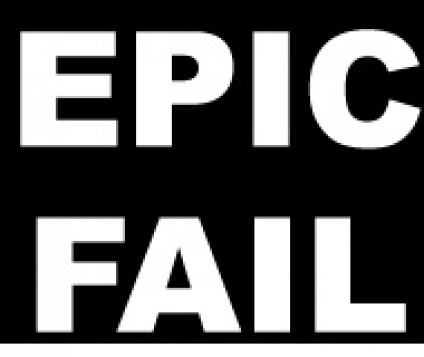We humans are an epic fail.
In internet-speak, that term can be used derisively or sympathetically. A failure of grand proportions can be labeled “epic” either to mock or to offer condolences to someone who fails so completely. However, given the speed at which pop-culture fads come and go, I’m told by younger informants that the term is already long out of date and that to invoke it is a sign of irrelevance.
Both the unkind and the compassionate aspects are appropriate here; we should be able both to laugh at, and feel sorry for, the human species. But unlike cultural fads, the ecological reality behind my use of the term remains relevant. Our species is an epic fail, and the scope and depth of our failure expands and deepens daily.
First, let’s acknowledge the irony in all this: Life on Earth is the scramble for energy-rich carbon; lately humans have dominated that competition; and now that domination is undermining life on Earth. We’re #1 for now, and it turns out that being #1 in this fashion means that over the long haul we lose big. And, increasingly, the long haul looks like it’s going to be a short trip. Our grandest failure is the product of our greatest success.
So, our task is to face a simple question that has serious consequences: Is the human with the big brain an evolutionary dead end? If so, what are we going to do with our species’ time remaining?
Homo sapiens’ domination of Earth is coming to an end, not in some imagined science-fiction future but as the result of today’s processes of resource extraction and waste generation. The trajectory of the multiple, cascading ecological crises that define our world cannot be predicted with precision, but the trend lines are clear enough. Our task is not to figure out how to maintain the illusion of human control of the ecosphere—and it always was an illusion, even when we seemed to be more successful—but instead, borrowing from my friend Jim Koplin, “to learn to leave the planet gracefully.”

